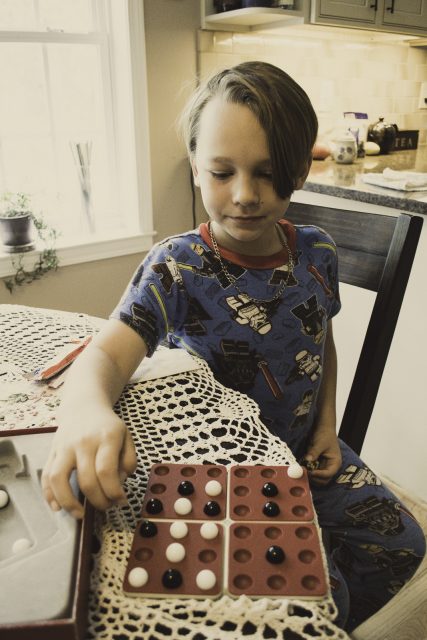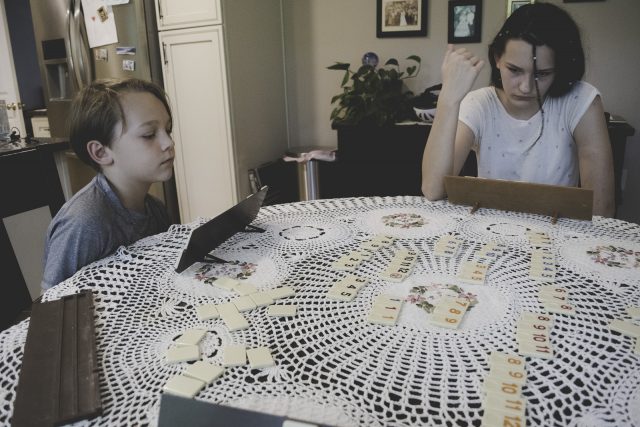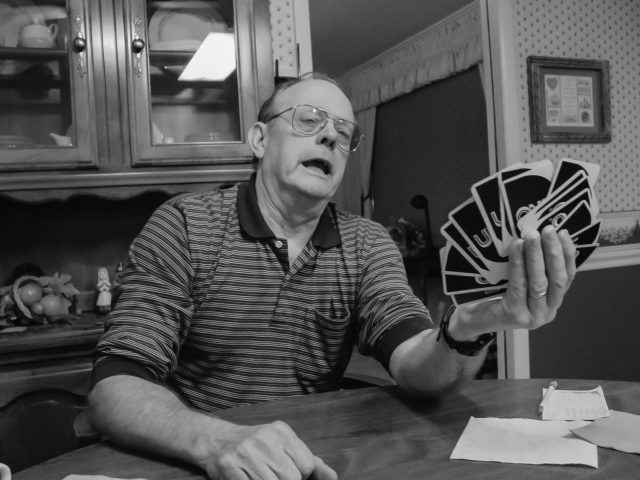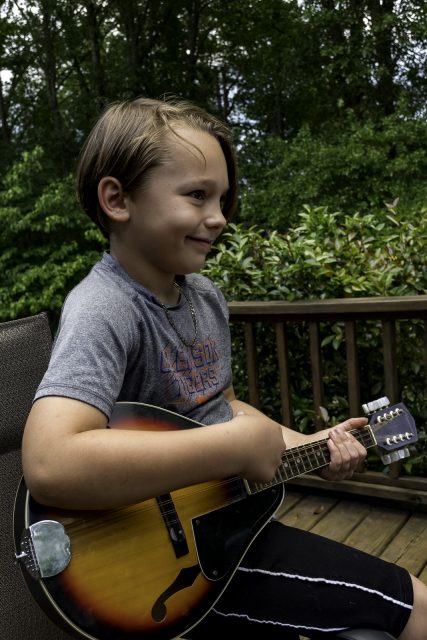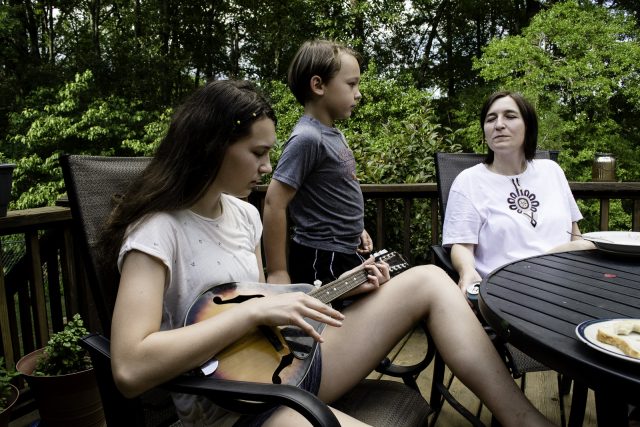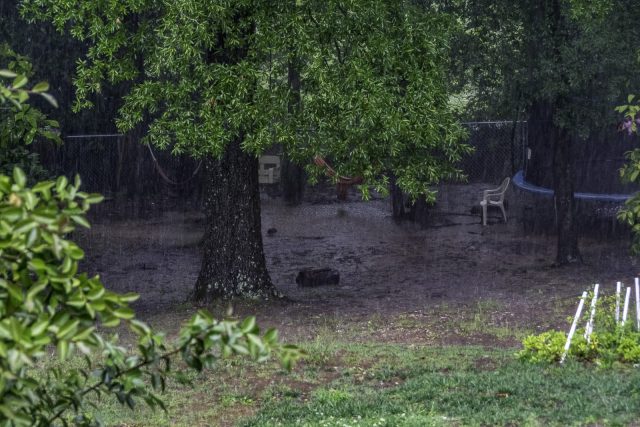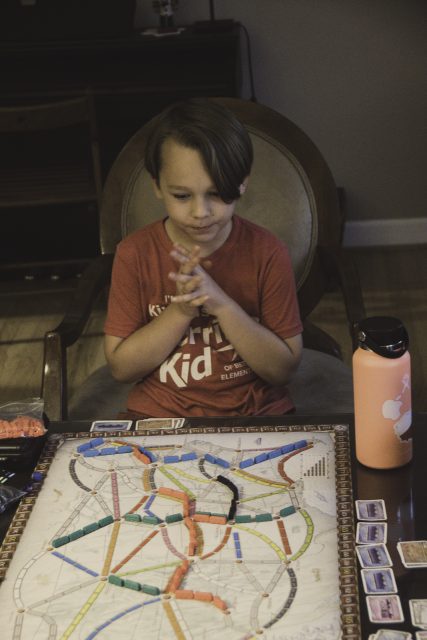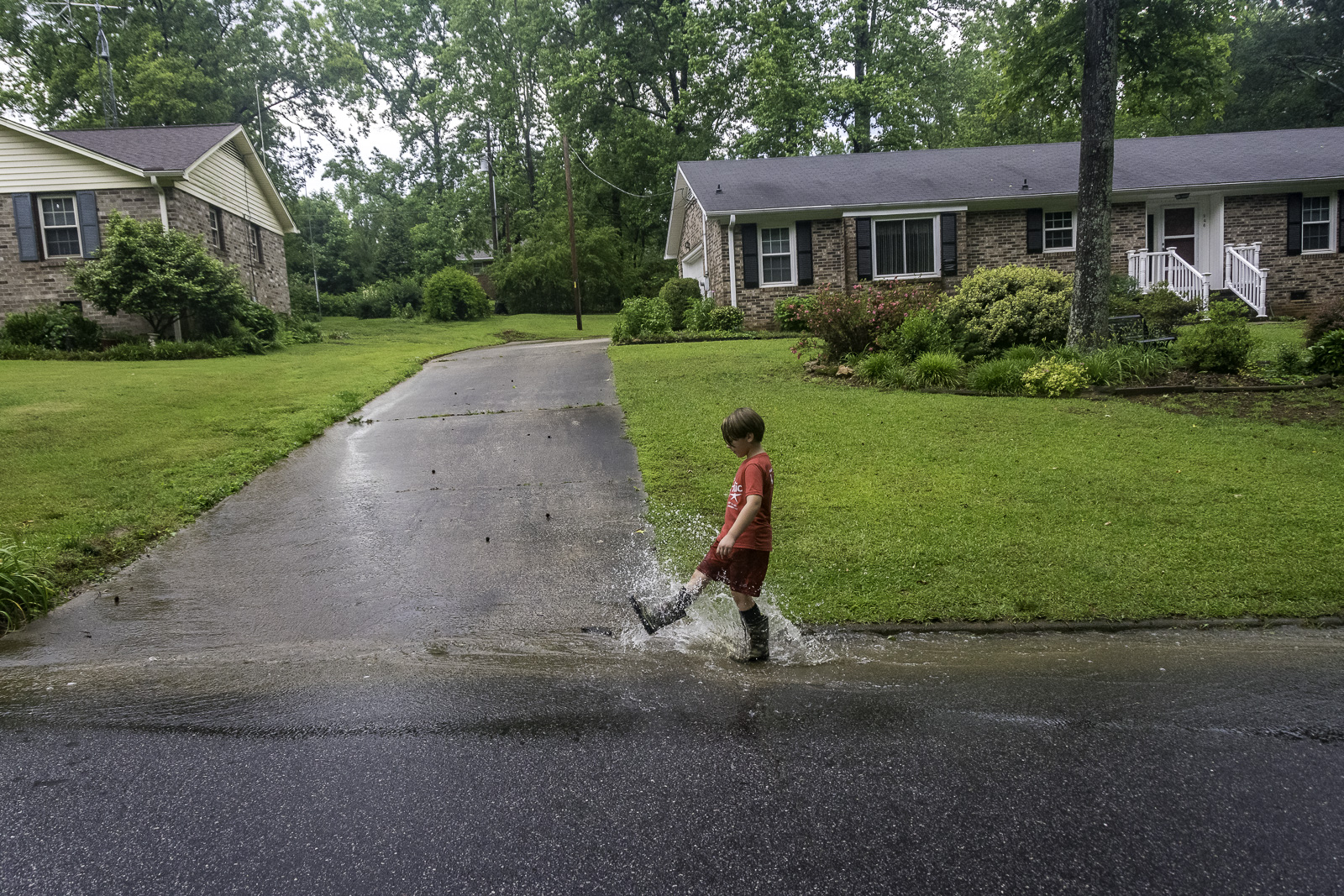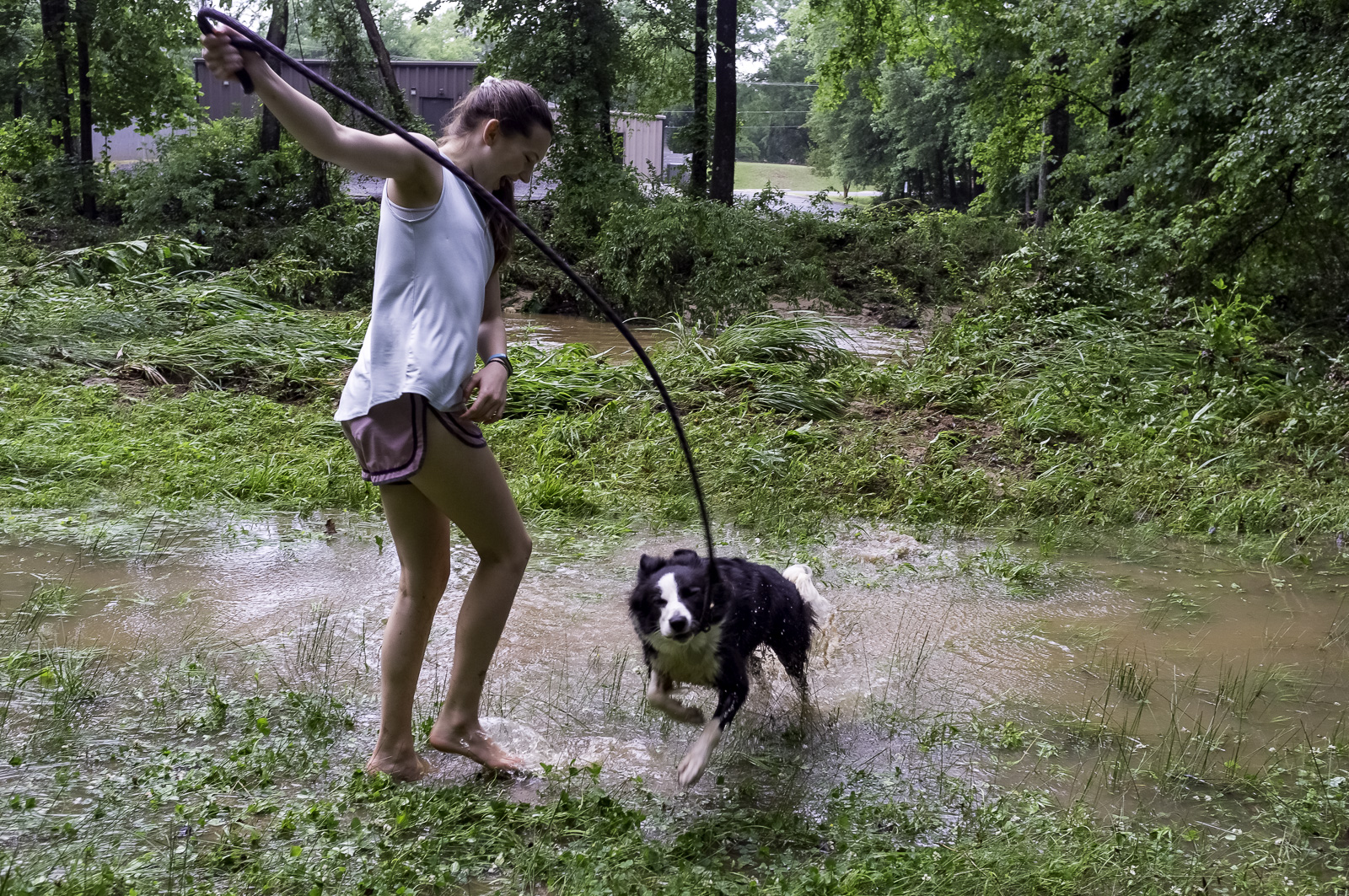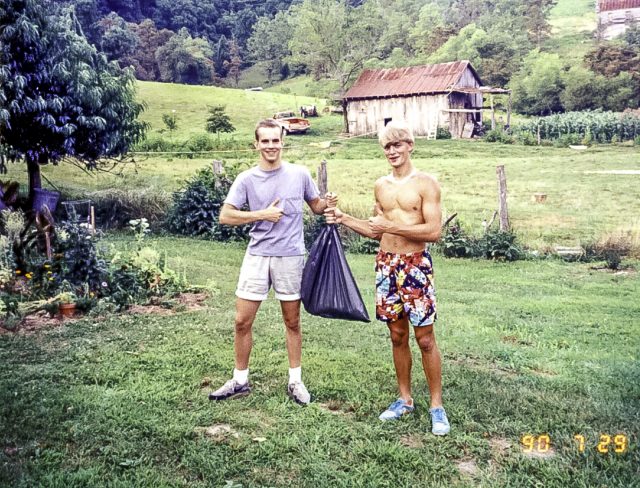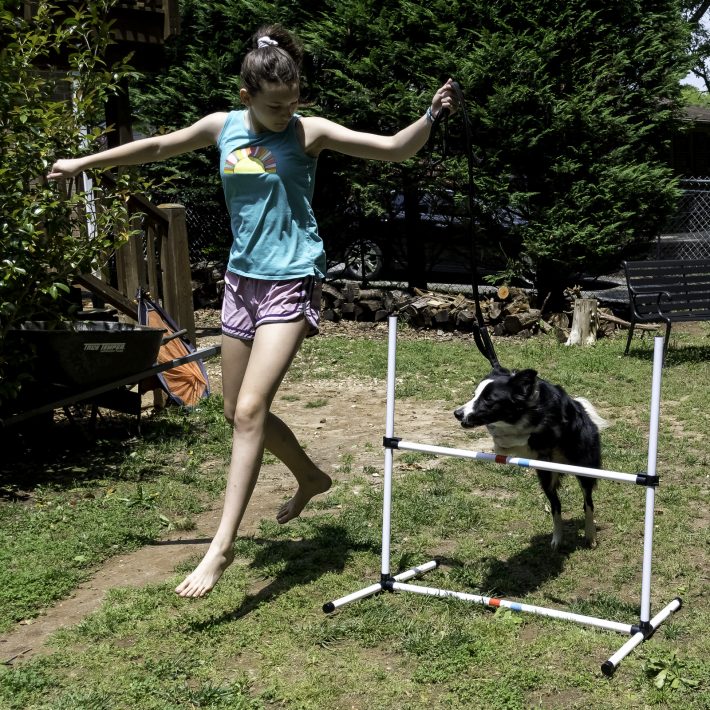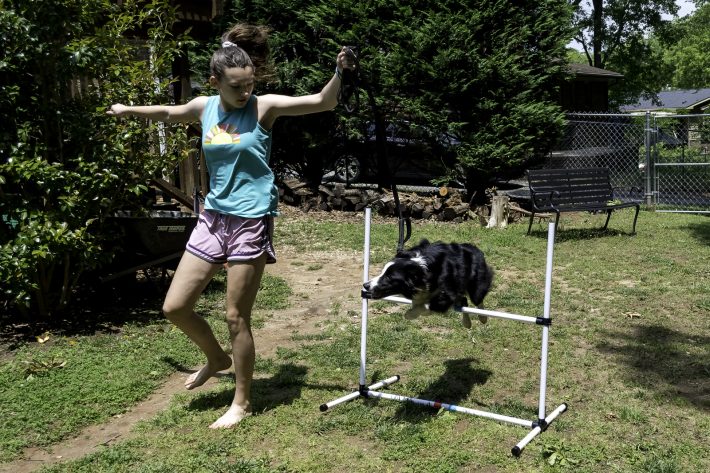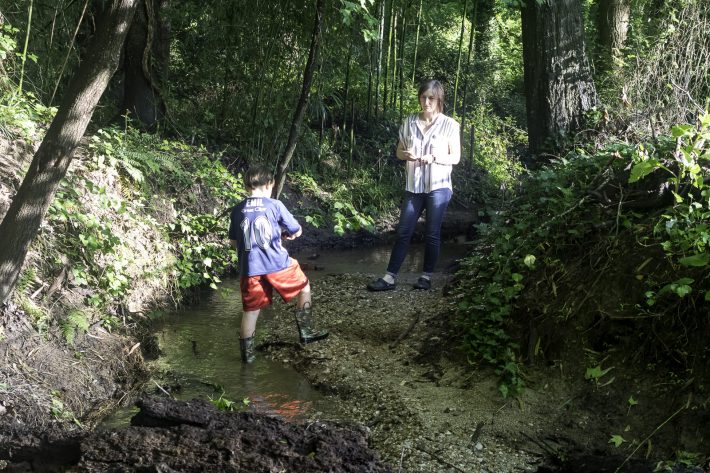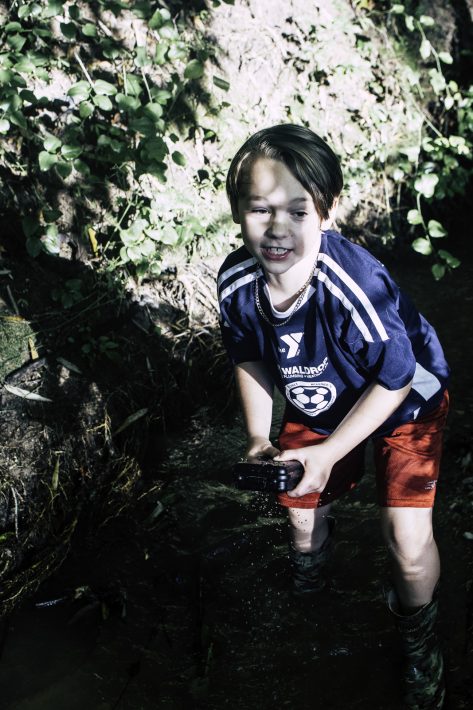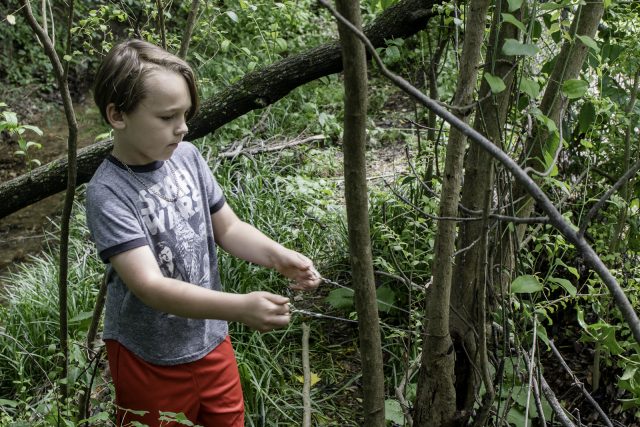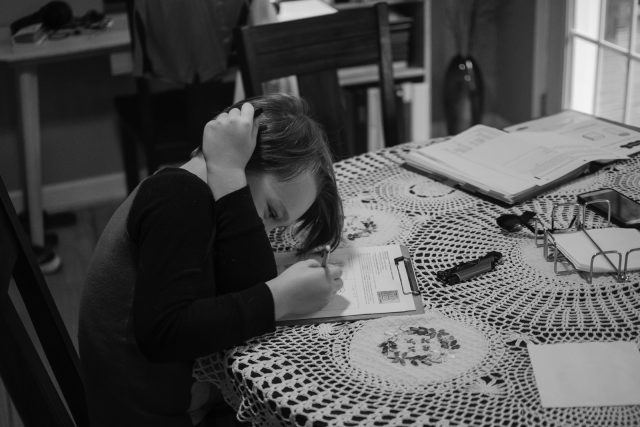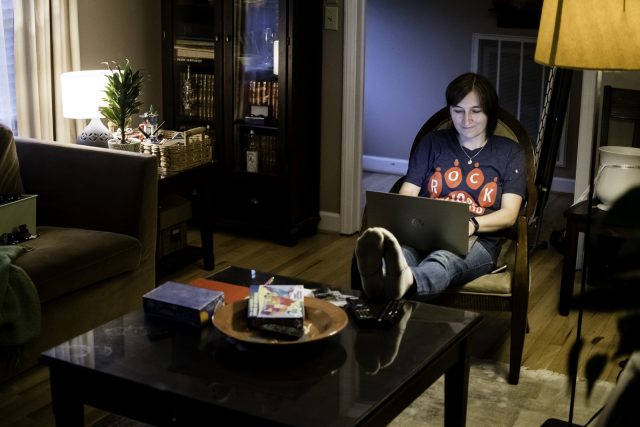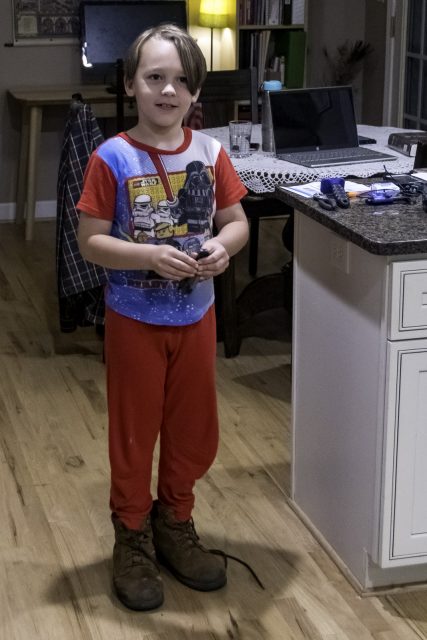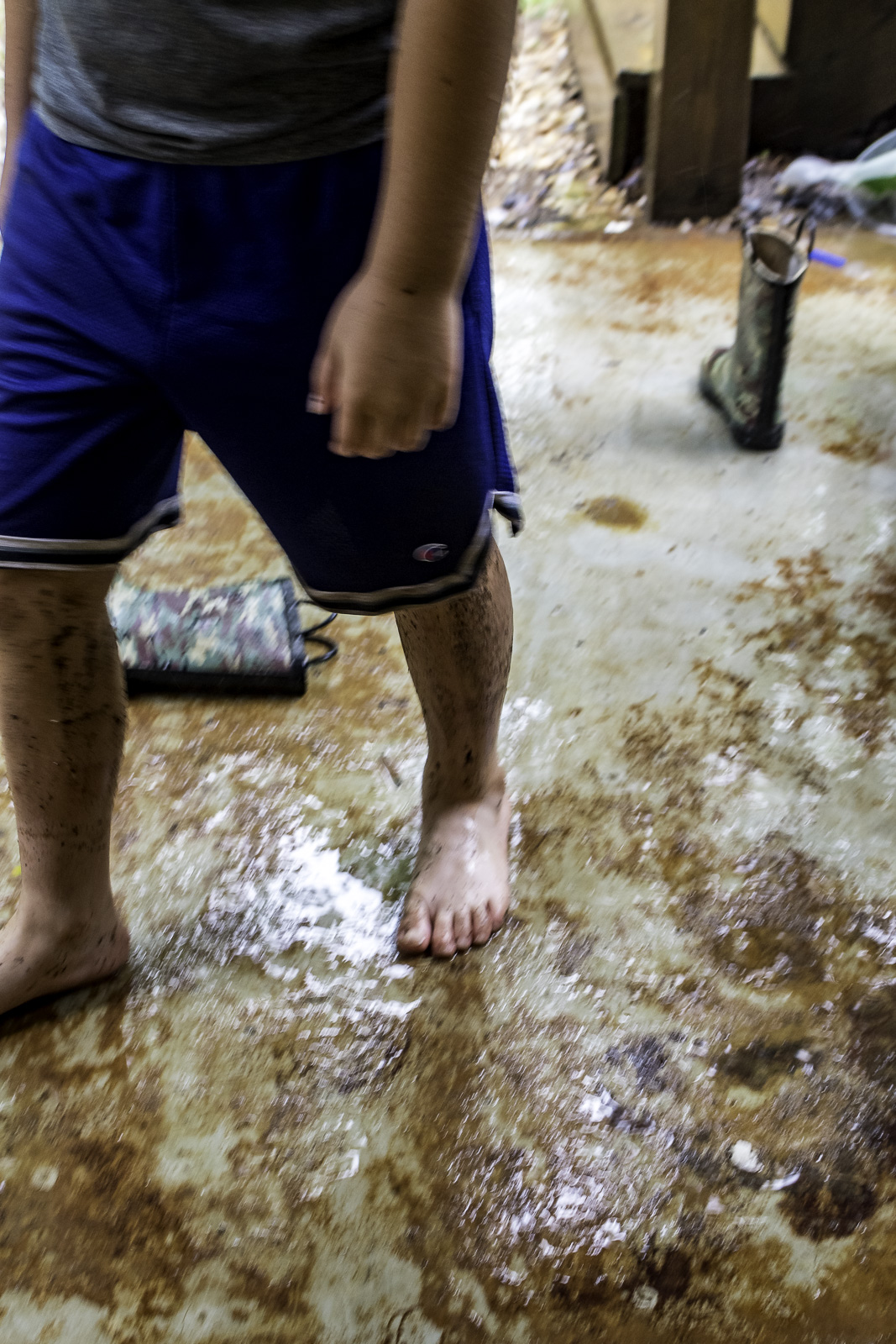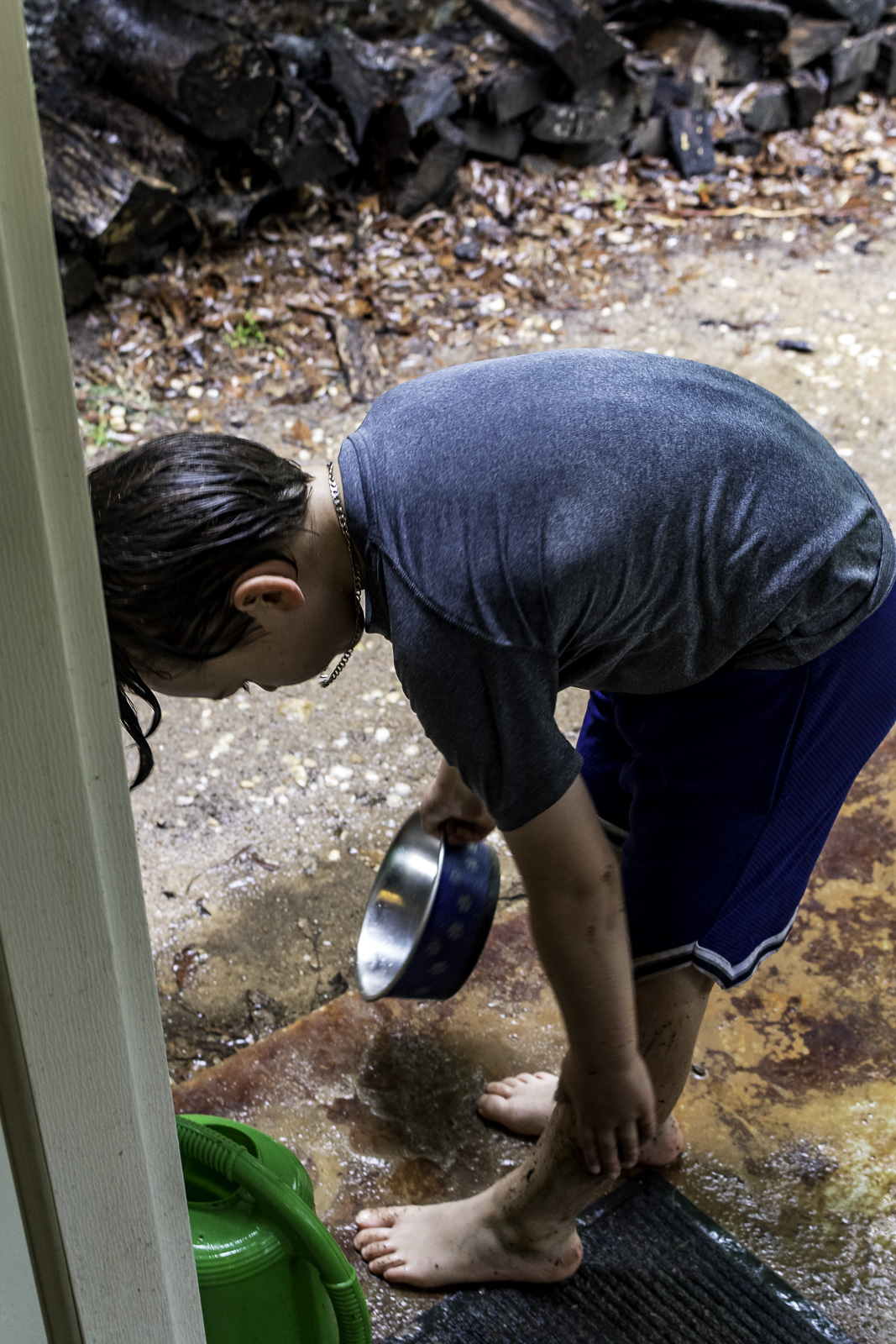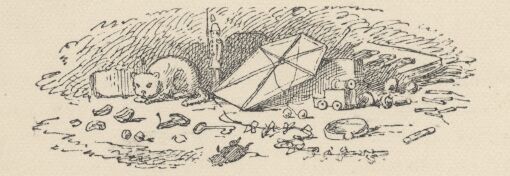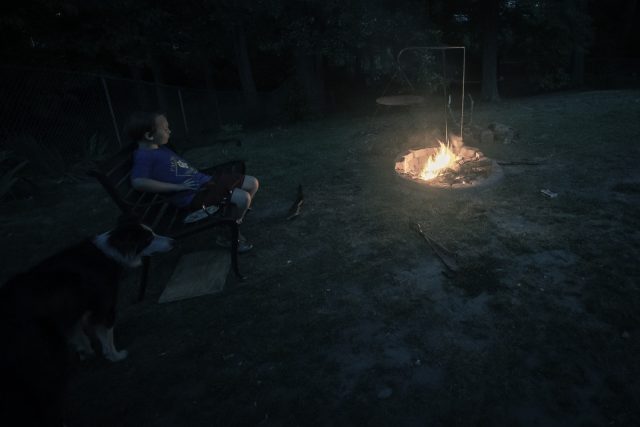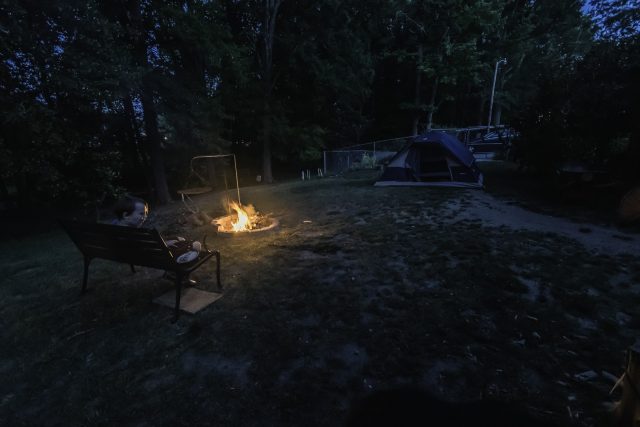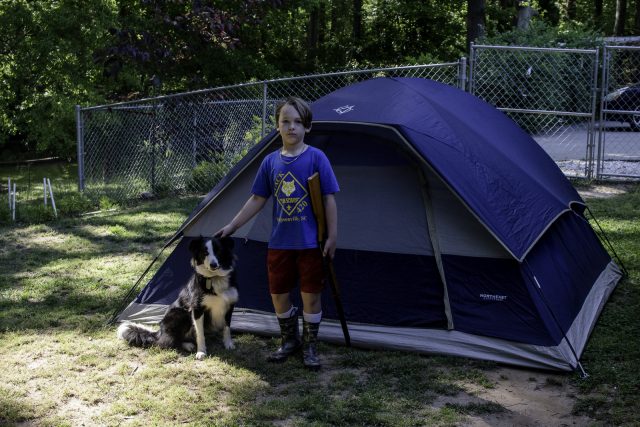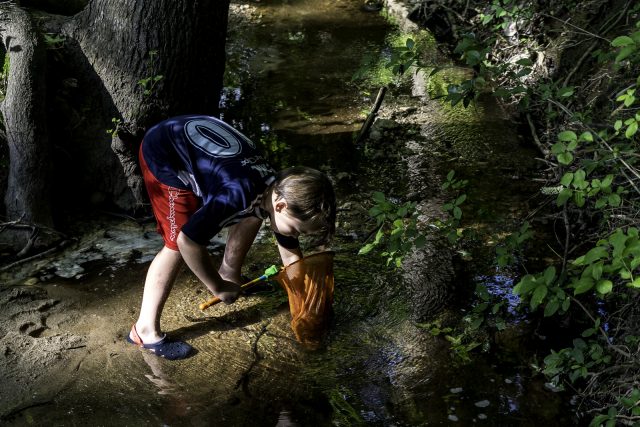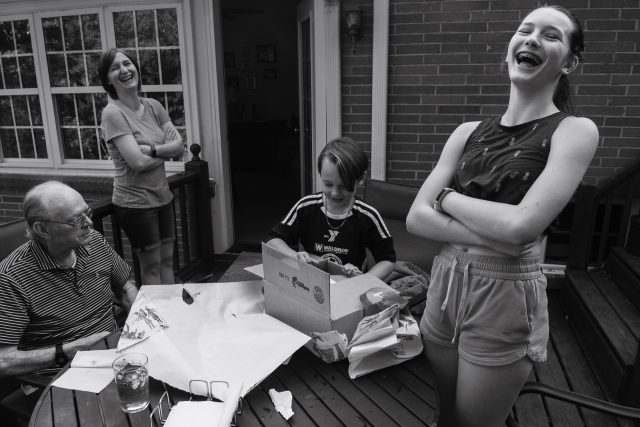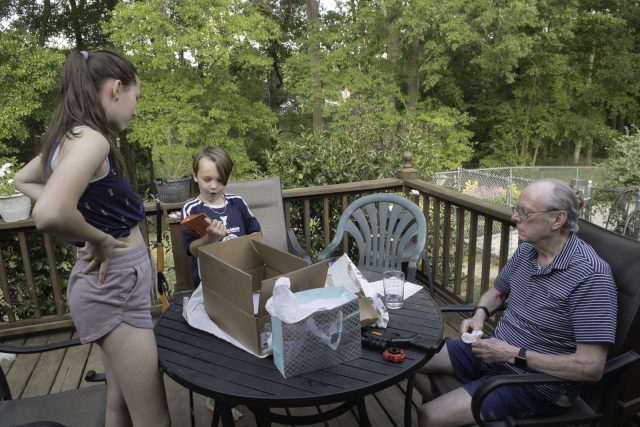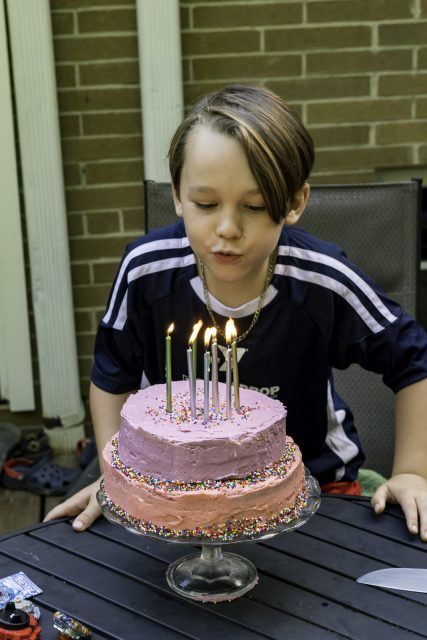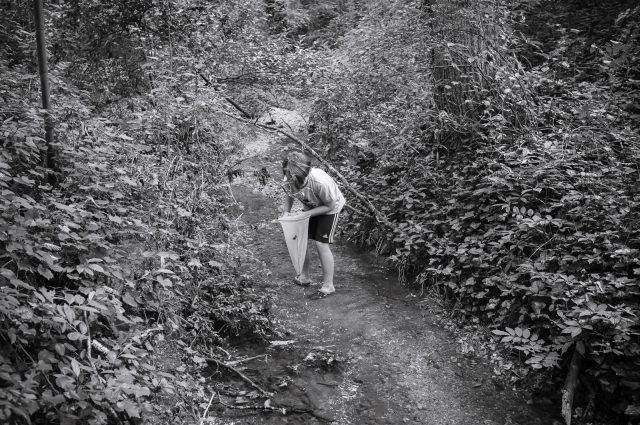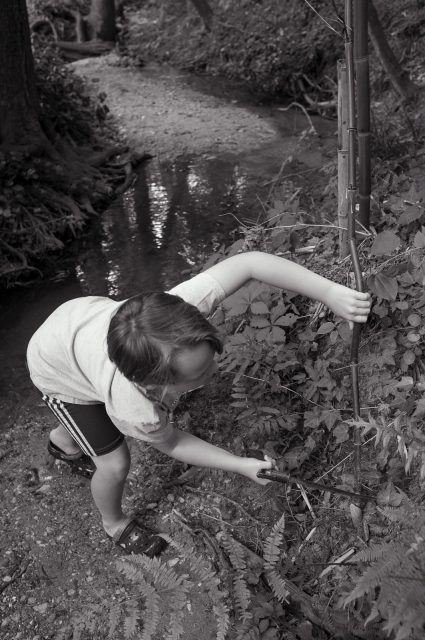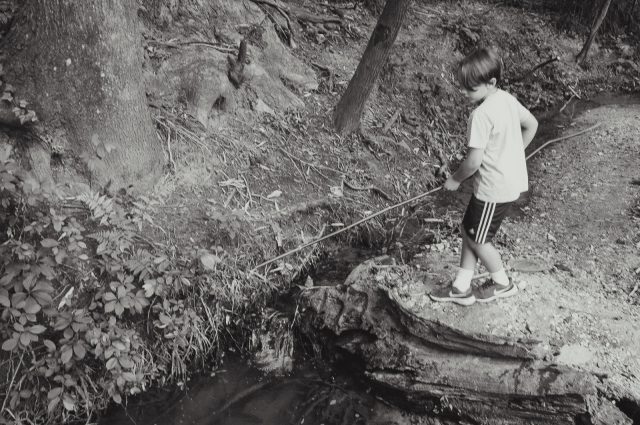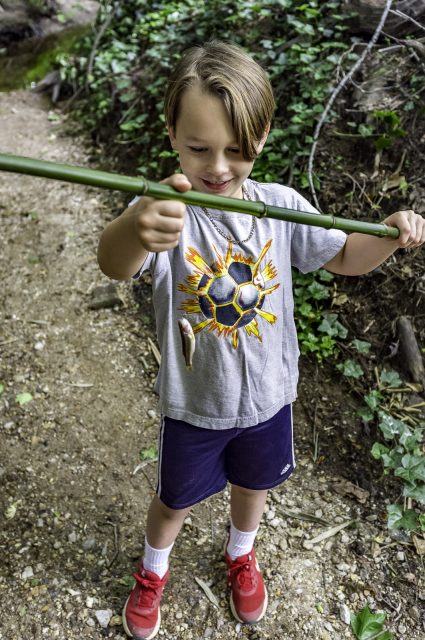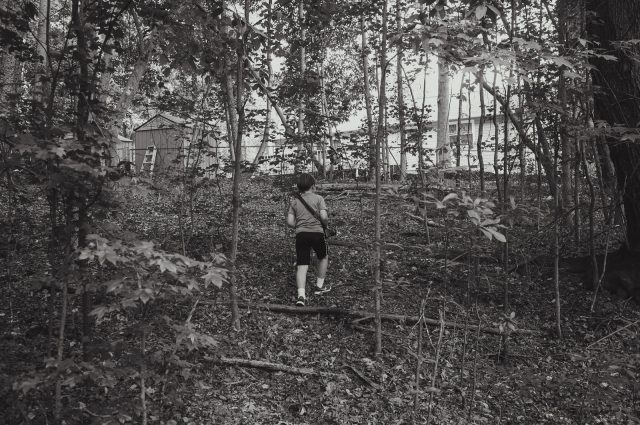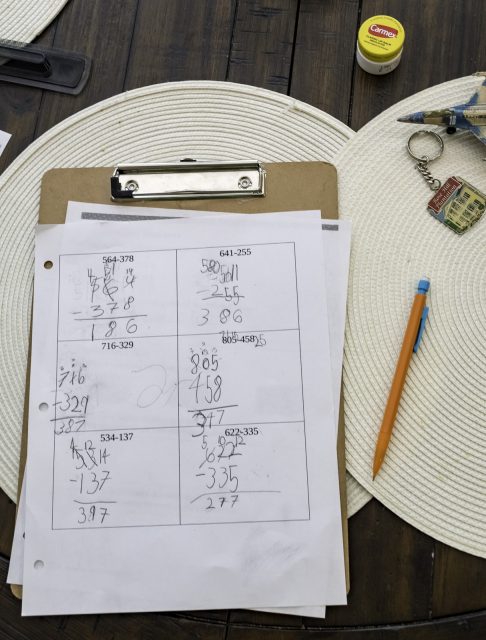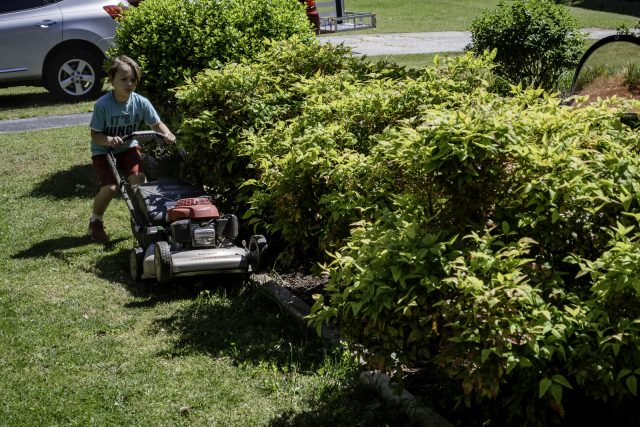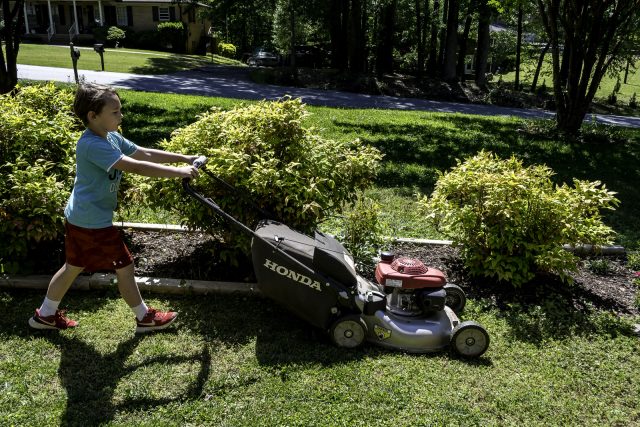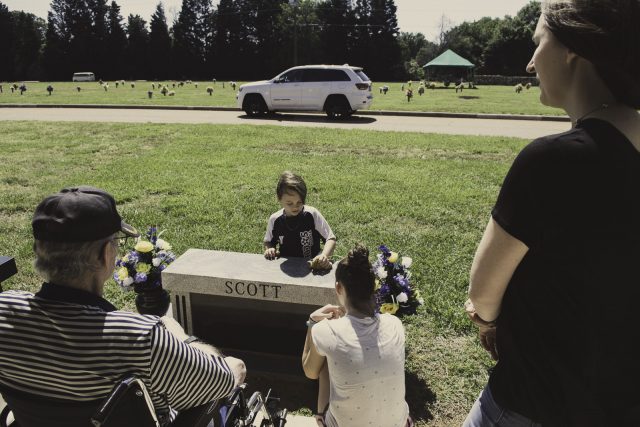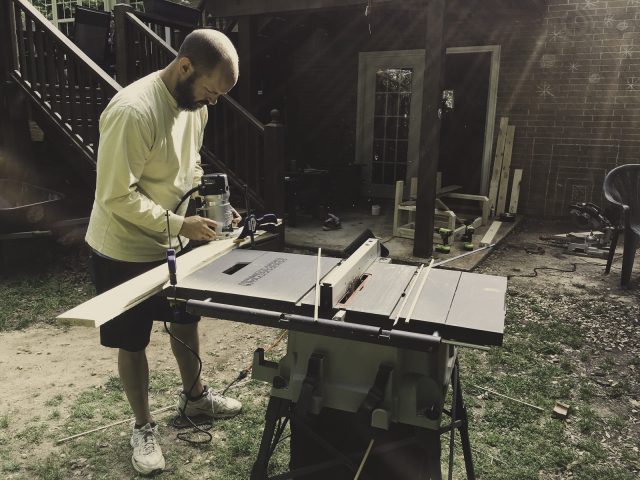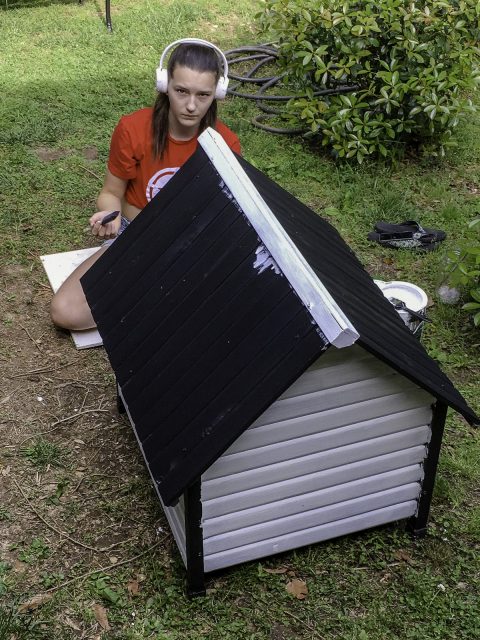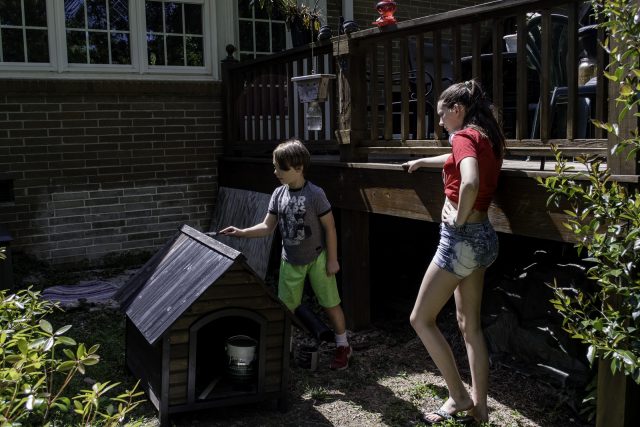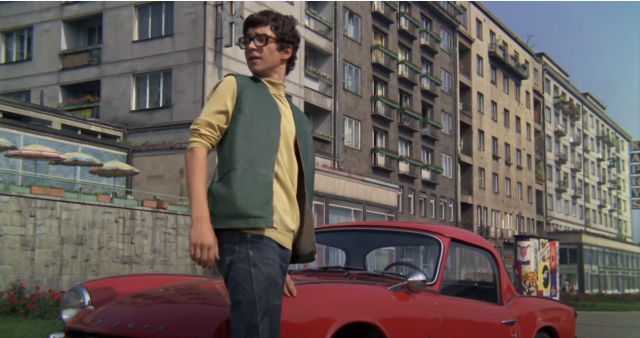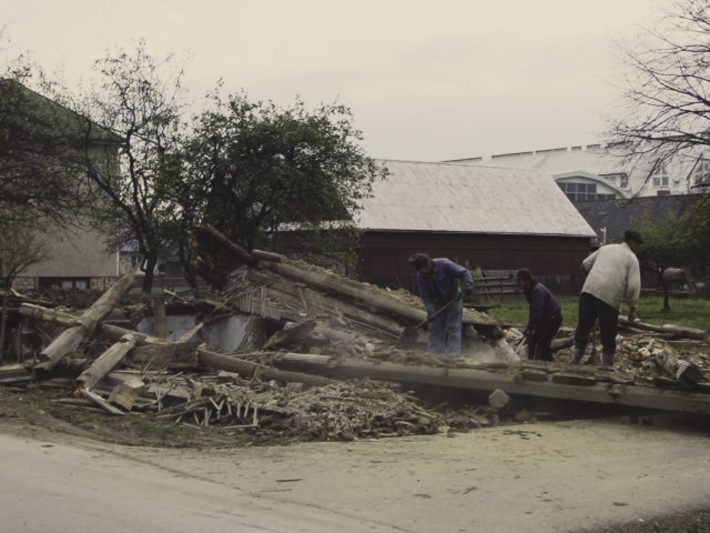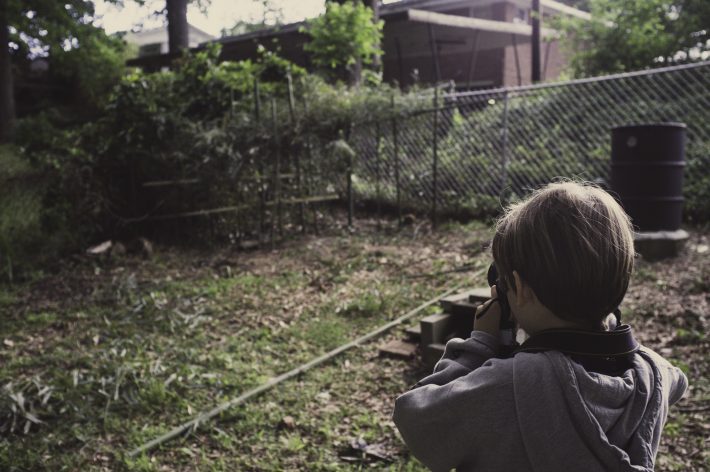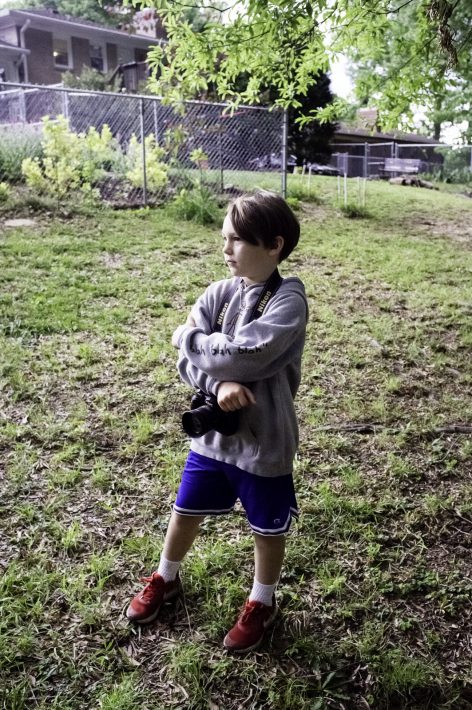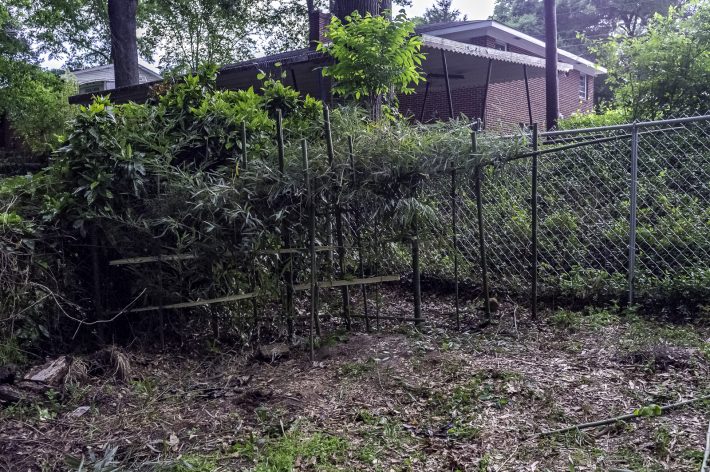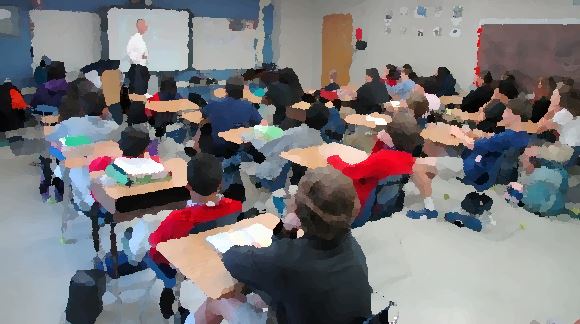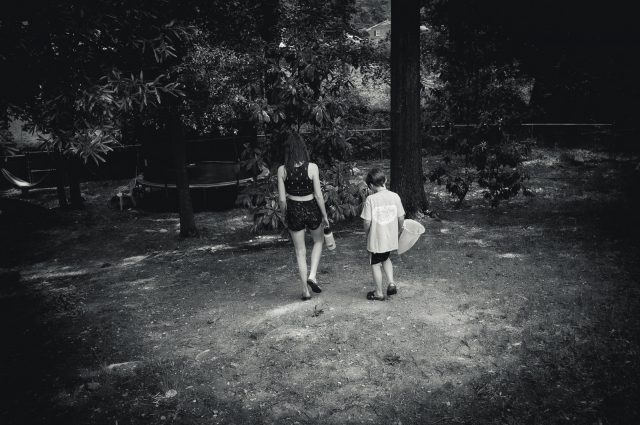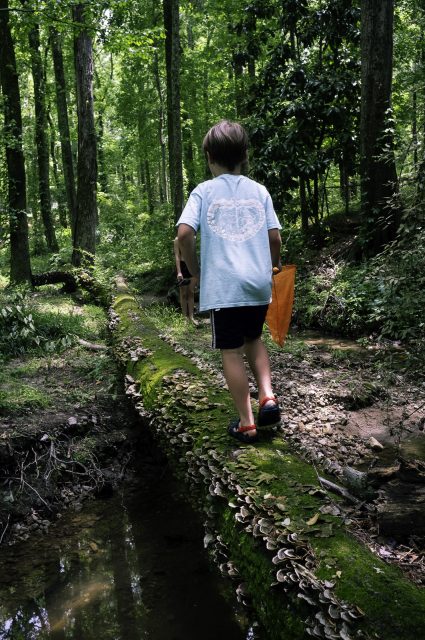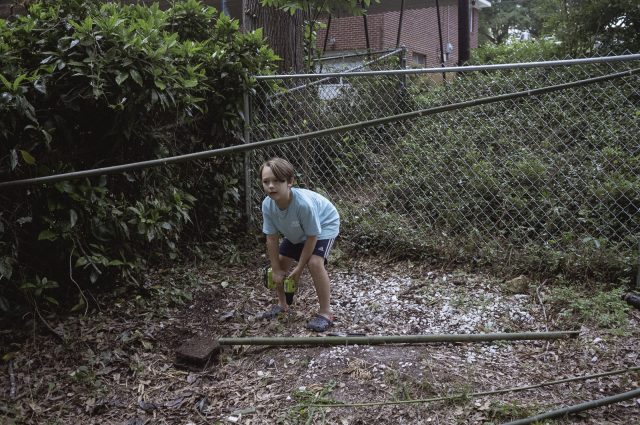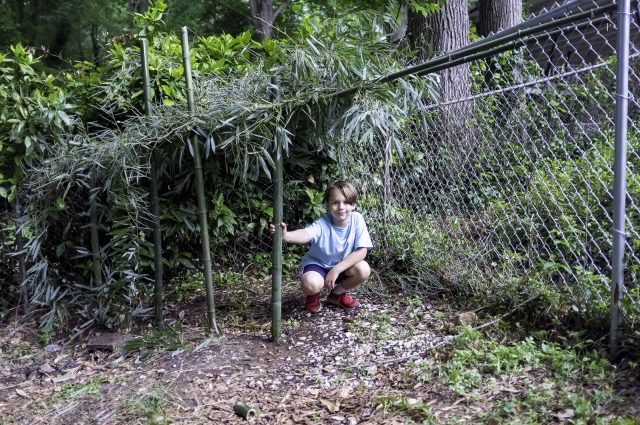Games We Play
This morning, E and I decided to play a game we hadn’t played in ages: Pentago. It’s a simple concept: Get five marbles of your color in a row. But the challenge is that each of the four nine-by-nine quadrants can be rotated. It’s a great game for the mental manipulate of objects because players have to turn those quadrants in their heads and make plans to try to surprise their opponent with an unseen 5-row connection.
At first, the Boy just tried to connect five in a row. I showed him quickly how easily stopped that could be, and how I could simply build on my efforts to stop him and create my own row with a twist here or there. Then he got it.
Did I “let him win”? Well, not so much. Once he figured out the importance of the twist, I played a while without really paying attention to anything other than his obvious efforts and he sneaked one or two by me.
After each game: “Can we play again?”
In the afternoon, the kids brought the old Rummikub satchel out: “Can you teach us how to play this?” they asked.
Indeed — I could barely remember myself. Something about runs and threes- and fours-of-a-kind. That was about all I could remember, and there were no instructions in the game.
It’s moments like that which make me really appreciate YouTube. A quick search, three minutes of watching the video, and off we went, playing a game I hadn’t played in decades.
I last remember playing it in Nashville with Uncle N and Aunt L over the Thanksgiving weekend. We might have played it the last time we were there for Thanksgiving, which would have been 2005. Though we could have just played dominoes and Uno — that’s all I have photographic evidence for:
Uncle N passed away less than a year later from ALS, and we never went back there for Thanksgiving. So it might have been even longer since I played Rummikub. At any rate, the kids loved it. The Boy, less so because he couldn’t see all the combinations and such. L, however, fit into the game perfectly: that type of kombinowanie is just what she does best.
Yesterday
We watched last night the 2019 film Yesterday, in which a failing musician somehow enters an alternate reality in which only he knows anything about the Beatles. He subsequently recreates their catalog as his own. As expected, there are lots of Beatles songs in the film.
“Is that a Beatles song?” L asked as one started.
“Is that a Beatles song?” E asked with the next one.
“Yes, they’re almost all Beatles songs,” I explained.
“How many songs did they write?!” the Boy asked incredulously.
As a result, we listened to a lot of Beatles music this afternoon. They kind of liked it — we kind of encouraged them.
It did inspire some musicality from them. The Boy has a little guitar that he suddenly became interested in. However, it is missing strings, so I suggested he play my mandolin, which I bought in high school because R.E.M. had released Green, which featured the mandolin on a number of tunes. It’s a $100 plywood job that’s a perfect size for him.
Tonight, I worked with him on some basic ideas: pressing down strings just behind a fret to change the pitch. Chords? They’re a long way off. (Besides, I can only remember four or five chords on a mandolin.)
The Girl, who has been toying with a ukelele from time to time, gave it a try only to be shocked at how very different it was tuned from her uke. (When she first got the uke, I was surprised to find that, like a five-string banjo, the highest string is actually in the position where the lowest string is for most other instruments. They both just have that one out-of-place string that always gives me fits.)
We’ll see how this develops, but hopefully, the interest will remain.
When do I stop counting?
When is this quarantine officially over? When do I stop prefacing every post with “Day X”? I started the first day we were supposed to go to school and yet didn’t — March 16.
Yet because we don’t have any coordinated national approach and since every state is easing restrictions step-by-step, there’s really no firm date for me to stop doing that. When we head back to school on a normal routine? (Will we do that in the fall?) I’ve decided that the most logical date to stop doing that is June 4, which would have been the last day of school were this a normal year.
On the other hand, I’m fairly certain that we will see an enormous uptick in cases after states have eased these restrictions. Just look at Cocoa Beach in Florida this weekend:
It’s concerning, to say the least:
On the Sunday talk shows, Dr. Deborah Birx, the coordinator of the White House coronavirus task force, said she was “very concerned” about scenes of people crowding together over the weekend.
“We really want to be clear all the time that social distancing is absolutely critical. And if you can’t social distance and you’re outside, you must wear a mask,” she said on ABC’s “This Week.” (Source)
If we have an explosion of cases, the very thing we were trying to avoid, then this entire 70+ lockdown will have been for nothing. Absolutely nothing.
Are we smarter than that as a species? Most days I have my doubts.
Counting
I’m on a run: I’ve never posted so many consecutive days on this site. Not even close. I’ve posted daily since December 21, 2019. Counting roughly, that’s 130+ consecutive days. Why? Why not?
Not only that, but for the month of May, I’ve written an average of 1,047 words a day. That’s like my journal writing when I first arrived in Poland and everything — everything — fascinated me endlessly.
Of course, I have cheated a few times: I included long quotes from books I’m reading, in part because I was honestly interested in writing a little something about them, in part (at least once) because I just wanted to reach that arbitrary number (like I just did in this paragraph). One thousand words. At least. Every day.
I can’t possibly keep that up. The quarantine is helping with that. But daily posts? Could I make it a full year? Probably. Will I? No idea.
